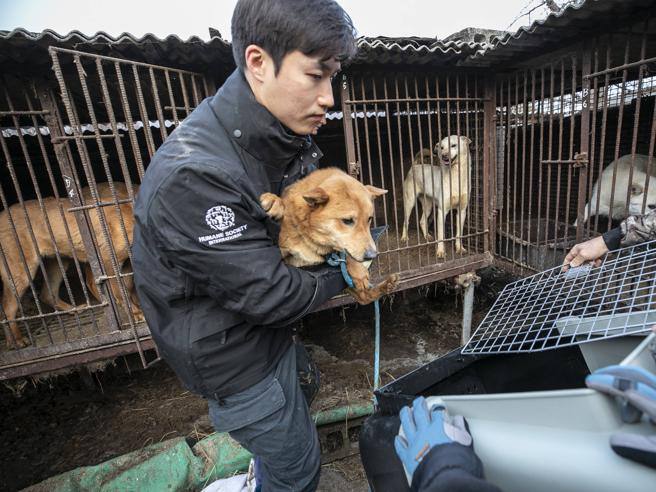The National Assembly has voted in favor of the measure (208 in favor, 0 against), which will come into effect in six months with a transition period of three years. “This law aims to contribute to the realization of the values of animal rights, which pursue respect for life and harmonious coexistence between humans and animals,” the approved text reads. In particular, the legislation provides for a penalty of up to 2 years imprisonment or a fine of up to 20 million KRW (South Korean won, equivalent to 14,000 euros) for breeding and selling dogs for food purposes and up to 3 years imprisonment or a fine of up to 30 million KRW (approximately 21,000 euros) for the killing of dogs for human consumption.
Dog meat stew (“bosintang”) is still considered a delicacy by some older South Koreans, but the meat is no longer appreciated by the younger generation. Less than a fifth of those surveyed said they supported the consumption of dog meat. “A historic victory for animals is the testament to the passion and determination of the animal rights movement,” she adds, recalling the efforts made by the association not only to combat the dog meat trade throughout Asia, but also to raise awareness of the conditions in which these animals are kept.
However, there have been discontent: several dog breeders have announced the filing of a petition to the Constitutional Court and various protests, calling the measure “unconstitutional.” Last November, the president of the National Association of Dog Breeders, Ju Yeong-bong, had declared: “Neither the president, nor the president’s wife, nor especially the Minister of Agriculture, nor the members of Parliament, nor the politicians have the power to deprive the people of the right to feed themselves. Depriving each citizen of their right to food is an atrocity and an act of violence.”
Even in nations where the consumption of meat remains allowed or tolerated, it is now a practice relegated to remote and rural areas and often linked to superstitions about supposed beneficial and aphrodisiac effects. “I hope,” the lawmaker added, “that the enlightened decision made by South Korea will serve as an example for other countries, especially in the Far East, where dog (and cat) meat is still consumed, albeit by a decreasing minority of the population.” *Corriere della Sera is also on Whatsapp.
Just click here to subscribe to the channel and stay updated. * January 9, 2024 (modified on January 9, 2024 | 17:56) © ALL RIGHTS RESERVED
